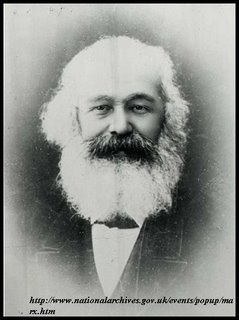
 I took a long walk this morning, about eight miles worth. One of the things I noticed as I walked was that Emporia is as it was about a year ago. Terry Bassler's still recovering from his war wounds incurred in Iraq well over a year ago now. Scott Rochat, ace reporter from the Gazette is still snooping around, looking for the hidden dirt at city hall. He hasn't found it yet, but I keep reassuring him that it's there. His cohort, Patrick Kelley, is where he most always is, butt glued to some naugahyde chair in the Gazette's catacombs. Me? I've still got a case of writer's block.
I took a long walk this morning, about eight miles worth. One of the things I noticed as I walked was that Emporia is as it was about a year ago. Terry Bassler's still recovering from his war wounds incurred in Iraq well over a year ago now. Scott Rochat, ace reporter from the Gazette is still snooping around, looking for the hidden dirt at city hall. He hasn't found it yet, but I keep reassuring him that it's there. His cohort, Patrick Kelley, is where he most always is, butt glued to some naugahyde chair in the Gazette's catacombs. Me? I've still got a case of writer's block.
With that in mind, I'm re-running a piece I did about a year ago on Labor Day. It's all about fairness and I also think it's about the fact that here in small town America few things change over time. The original piece now follows:
It’s Labor Day weekend. Here in Emporia, Kansas, things are quiet as they always seem to be. The weather is cool for this time of the year, by Kansas standards. I took my morning walk, passed by Terry Bassler’s house, looked at the yellow ribbon on the tree in front of his house, and said a little prayer as I passed. I got home and mowed the lawn while my wife, Nancy, weeded her gardens. At about one thirty we took a jaunt up to Jay’s, Emporia’s best hamburger “joint” to celebrate. This evening the smell of barbeque is in the air.
In short, the Labor Day holiday here in Emporia is small town America as it should be at this time of the year.
It’s not that we Emporians don’t care about what’s going on in the world. The yellow ribbon on the tree in front of Terry’s house reminds me that he is going to be deployed to the Persian Gulf in a few weeks. And just about everyone in Emporia will be going to church tomorrow to pray for the safety of men like Terry, for blessings on working men in women all around this country, and for God’s healing hand to be with Bill Clinton next week.
Over all, people here in this part of the country seem to be pretty happy. At least I haven’t seen any gangs of revolutionaries roaming around. I take that to be a very encouraging sign.
But we do have a gadfly or two here. Emporia’s “lord of the flies” is a fella’ named Patrick Kelley, editorial page editor at our local rag, the Emporia Gazette. In the five years I’ve been here I think I’ve only agreed with him two or three times. While I’m sure he’d claim that I’m the problem, I know, my wife knows, and our six cats know that I’m not.
Today was no exception. It all started innocently enough. In his salute to labor he began by saying:
“Of course, not everybody gets Labor Day off, because there is some important work that must be done every day. Give a thought to the police officers, firefighters, nurses, doctors and others who are working to keep their neighbors healthy and safe. And don’t forget the soldiers in Iraq, Afghanistan and Bosnia, who never get much of a holiday at all.”
Who wouldn’t agree with that sentiment? I found myself in complete agreement with him. I’m deeply appreciative for what all these, and other workers, do for me. I’m retired now and I know what it’s like to work. In my working life I’ve done some of the hard things. I shoveled snow door to door as a kid for a buck a sidewalk. When I was in high school I delivered groceries from the back of “Sahady’s” vegetable truck. I’ve worked as an usher in a downtown Boston theatre for forty five cents an hour. . I’ve been in the military. When I signed up I agreed to a seventy eight dollar a month salary. I’ve assembled dishwashers and refrigerators for Westinghouse for two ninety two an hour. I’ve dispatched the big rigs and have been a regional line haul manager in the trucking industry. I’ve loaded freight on freight docks. I’ve cleaned bathrooms. I started at FedEx as a customer service agent and moved on to the corporation’s logistics division and then finished my career in engineering.
Now I’m not outlining my resume to boast. I don’t think my work history is more unusual than most people’s. And, while I didn’t set the world on fire, I certainly didn’t fail. What my resume says is that I know what it’s like to work and appreciate those who do.
Well, Patrick Kelley couldn’t leave well enough alone. From his tribute to labor he launched into a diatribe against the evils of capitalism:
“A recent study by the Institute for Policy Studies and United for a Fair Economy found that the pay gap between chief executive officers and the people who work for them is widening once again. Last year, CEO’s made 282 times the salary of their average workers. This year, the ratio is up to 301.”
“At the same time, the Economic Policy Institute reports that, adjusted for inflation, American blue-collar workers wages have actually gone down since the end of the recession.
Somewhere along the way, America has lost sight of the fact that behind every success story, there are workers who make the business thrive. For every Henry Ford or Bill Gates, there are thousands more who do the work, building the cars and writing the computer code.
America’s wealth is not in its factories or its corporate cash reserves. It’s wealth is in its workers – the people with the skills and talent to make the grand ideas a reality.
Without them, the factories are just rusting metal and the entrepreneur’s grand ideas are nothing more than passing dreams.”
I read the piece and thought I’d better take a peek out my window to see if the revolution had begun. Thankfully, it hadn’t. But it’s not because our community gadfly wasn’t trying. Do his words sound familiar? If you’re not sure a couple of snippets from Karl Marx might help:
“The laborer becomes poorer the more wealth he produces, indeed, the more powerful and wide-ranging his production becomes. The laborer becomes a cheaper commodity the more commodities he creates. With the increase in value of the world of things arises in direct proportion the decrease of value of human beings. Labor does not only produce commodities, it produces itself and the laborer as a commodity, and in relation to the level at which it produces commodities.”
“Still, even today, socialism is particularly forthright in advocating direct pursuit of working class interests, even at the expense of what other ideologies consider the legitimate property rights of the wealthy classes.”
“The average price of wage labor is the minimum wage, i.e., that quantum of the means of subsistence which is absolutely requisite to keep the laborer in bare existence as a laborer. What, therefore, the wage laborer appropriates by means of his labor merely suffices to prolong and reproduce a bare existence. We by no means intend to abolish this personal appropriation of the products of labor, an appropriation that is made for the maintenance and reproduction of human life, and that leaves no surplus wherewith to command the labor of others. All that we want to do away with is the miserable character of this appropriation, under which the laborer lives merely to increase capital, and is allowed to live only in so far as the interest of the ruling class requires it.”
Of course, what Mr. Kelley failed to mention was the same study noted that workers’ wages had gone up forty eight percent over the time period while inflation had gone up forty one. He failed to mention that the 2004 study was nothing more than a rehashing of a 2001 study by the same institute that had concluded that the 1990’s was the “decade of greed.” That study also had the same buried statistics that revealed that workers’ wages had gone up thirty seven percent in the nineties compared to a thirty one percent increase in inflation. He failed to mention that the 2004 study concluded that “corporations should have to provide answers.” While they didn’t say who they should answer to you can be sure it will either be to some Congressional committee or an expert from the Institute for policy Studies and United for a Fair Economy. He fails to mention that the “Institute” has other projects. For example, one 2001 project, aimed at youth, advocated dismantling the Electoral College. The language they used was clever, designed to appeal to a young audience:
"Is the Electoral College a Fair System?
A LOT of people do not think so. The 2000 Presidential election proved the injustice of the Electoral College. How is it possible that after winning the majority of the votes from American citizens, Al Gore was still declared the loser in the presidential election?”
The institute’s “publication” list also includes interesting titles like “Power Trip – U.S. Unilateralism” and “The Pre-emptive Empire – A Guide to Bush’s Kingdom.”
Put it all together and you’ll get a good picture of what Mr. Kelley’s “Institute” is all about:
“While other think tanks celebrate the virtues of unrestrained markets and individualism, IPS is building partnerships to create a more responsible society — one built around the values of justice, nonviolence, sustainability, and decency.”
The information Mr. Kelley cited from the Economic Policy Institute is just as conflicted. A sample about their views on the success of welfare follows:
"It depends on who you ask. There is widespread agreement that the economic boom of the late 1990s decreased unemployment among low-income workers (including those moving from welfare to work) and consequently increased wages. However, many still had trouble making ends meet with hourly wages that averaged only around $7. Families still faced significant hardships in the areas of food security, inadequate child care, and insufficient access to housing (Boushey and Gundersen 2001). In sum, while many of these workers experienced wage increases that helped to pull them above the poverty line, they were not enough to allow families to make ends meet."
It’s now about 10:15 PM here in Emporia. After reading all this stuff from the "Institutes"I think it might be a good idea to look out the window once more. The barbarians may be at the gate. Someone may have resurrected Marx. I can almost hear him as I peer out my window:
"In one word, you reproach us with intending to do away with your property. Precisely so; that is just what we intend
Communism deprives no man of the power to appropriate the products of society; all that it does is to deprive him of the power to subjugate the labor of others by means of such appropriations.
The Communists disdain to conceal their views and aims. They openly declare that their ends can be attained only by the forcible overthrow of all existing social conditions. Let the ruling classes tremble at a communist revolution. The proletarians have nothing to lose but their chains. They have a world to win. Proletarians of all countries, unite!"
I’m sure that Patrick Kelley would deny that he’s a socialist at heart. He would claim that he just wants a system that’s fair for all of us.
Well, what’s the problem then?
First, there are a lot of things in life that seem unfair. Buddy Biancalana played shortstop for the Kansas City Royals in the eighties. He hit .205 over that period. Two oh five! Do you know how much he made? About two million big ones a year! He had 113 hits and made about ten million dollars during his Kansas City playing days. That’s an average of $88,500 per hit. Now, the man couldn’t hit a baseball if he used a banjo, much less a baseball bat. I ask you, “How fair is that?”
Why isn’t this obsession with fairness fair? Because the obsession makes things worse. Economist F.A. Hayek put it this way:
“The demand for the new freedom (the freedom from want) was thus only another name for an equal distribution of wealth.”
The end of that pursuit, Hayek concluded, “Was, in fact, the High Road to Servitude.”
Why doesn’t it work? Peruvian economist Hernando DeSoto, a capitalist and advocate of free market reform in the third world, noted in his book “The Mystery of Capital” that it “is because knowledge about the poor has been monopolized by academics, journalists, and activists moved by compassion or intellectual curiosity rather than by the nuts and bolts of legal reform.”
And what are the nuts and bolts? The 2001 edition of “Geographica, the complete illustrated Atlas of the world” has some interesting statistics concerning per capital Gross National Product. The United States average was $26,980. The GNP per capita of Costa Rica, in U.S. dollars, was “$2,610. The average for Belize was $2,630. And the average for Cuba, the “workers’ paradise” was $766!
Capitalism works!
My youngest son owns a small insurance agency. He wasn’t always doing so well. I remember the bi-monthly calls I got when he was in college. “Hi, dad. You don’t suppose you could send me a bit of money, do you?” After several calls and several checks FedEx’d to Springfield, Missouri I decided the next call would produce a two (Nancy and me) on one (Michael) face to face visit. Well the call came and Nancy and I took the back roads from Memphis to Springfield. We found out that the man wasn’t working. “Why?” I asked. His answer almost floored me. “There aren’t any jobs.”“No jobs?”
“Well I guess you can get a job flippin’ burgers if you want, but who wants to flip burgers.”
“Why not? Look at this short and long term, my man. You can either do it for a couple of years while you’re going to school so that you don’t have to do it for the rest of your life or you can flip burgers for the rest of your life. Those are the options.”
“That’s not fair.”
“Get a job. My putting you on the family version of the dole isn’t fair either.”
Later that evening we stopped by a restaurant for a bite to eat. I noticed one of the busboys as I ate. He was a man about my age (about fifty six at the time). I knew nothing about him except that he had to work bussing tables. I seized the opportunity. “Do you see that guy, Michael. He’s probably a real nice guy. He probably has a family to support. He’s probably doing his best and his family’s probably doing alright too. This is just what he does. Do you know, Michael, you can do that too and I won’t love you any less than I love you now. But you listen to old Dad for a minute. If you want a better life and you want to finish college you need to start seeing the big picture.”
Well he did. He got a job and finished school. And now he’s out there working every day, just like millions of other Americans. He’s just started and I don’t think he’s making a lot of money yet, but he’s seized the opportunity and he’s going to be okay. he may hit better in his profession than Buddy Biancalana did in his, but he may not make as much money. That'll be okay too. I did better than Buddy in mine and I didn't make as much money as him either. But you know what? I'm not jealous of him; I'm happy for him. That's the way things are supposed to work.Could things be better? Of course. But I know one thing for sure. If Patrick Kelley and the “Institutes” he so adores get a hold on the system to make it fair we’ll all wind up in the tank. Our per capita GNP will sink like an anchor. Then the revolution will really begin.



